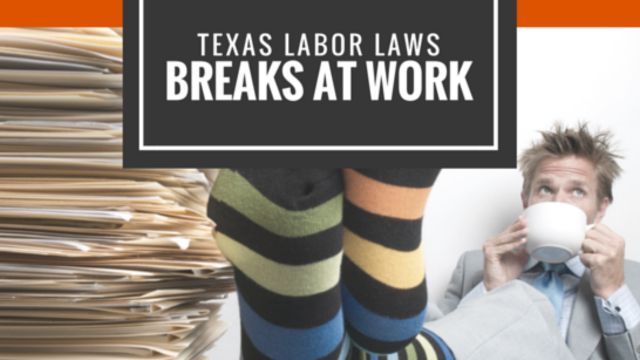MJP –
The state’s worker leave laws in Texas prevent employees from losing their jobs in a variety of scenarios. These rules ensure that workers won’t have to choose between their jobs and their health in the case of a personal or family crisis.
The following are five worker leave laws that any company or employee doing business in Texas should be aware of:
1. The Family and Medical Leave Act
The Family and Medical Leave Act (FMLA) extends its protections to certain states, including Texas. The Family and Medical Leave Act (FMLA) permits up to twelve weeks of unpaid leave every calendar year for eligible family and medical reasons.
Taking time off work to attend a new baby’s birth or adoption, a loved one’s serious illness, or your recovery from a serious illness are all acceptable reasons. Although workers won’t receive pay while they’re out, they can rest easy knowing their jobs and health insurance will be safe.
Workers must have put in a total of 1,250 hours over the past year and have been with the same employer for at least 12 months to qualify. Family and Medical Leave Act coverage extends to businesses with fifty or more employees.
2. Texan Military Leave
Texas provides unique protections to its military members, especially those serving in the National Guard and Reserves. Texans have the legal right to take time off without pay to participate in military service, whether that’s basic training, active duty, or some other role.

When employees return from duty, they are entitled to their prior position or one with similar duties and pay. This law ensures that active-duty military members will not be fired from their civilian positions once they have fulfilled their military obligations. Employees can spend their earned paid or vacation time during military leave, even if employers are not required to pay salaries during this period.
3. Time Off for Victims of Crime
Employees in Texas who have experienced or have a family member who has been a victim of crime are guaranteed legal protection.
SEE MORE –
Cereal Brand in Hot Water: Multiple Lawsuits Claim Dangerous Lead Levels
Unpaid leave is granted to victims so that they can attend criminal court proceedings such as trials, hearings, and other related actions.
Victims of sexual assault, domestic violence, or other violent crimes should utilize this leave to their fullest extent, since going through the legal system may be a physically and emotionally taxing ordeal. Because companies cannot fire employees for taking this leave, victims can pursue justice without fear of retaliation.
4. Vacation for Serving on a Jury
If an employee is summoned to serve on a jury, the law in Texas mandates that their employer grant them time off. You will not receive any compensation for the time you devote to sitting on a jury unless your employer has a specific policy or agreement regarding this matter.
No employee may face disciplinary action, termination, or threats from their company because they served on a jury. Jury duty is not mandatory, and employees are not required to use vacation or PTO time. The civic duty to serve on a jury is protected by this act, which also protects workers from any consequences related to their employment as they carry out this important role in our justice system.
5. State Employee Parents’ Right to Paid Time Off
Currently, Texas does not have a paid parental leave policy for private sector employees. However, there are some conditions for government employees to meet to be eligible for parental leave. If a state employee is not qualified for FMLA, they may be permitted to take up to twelve weeks of unpaid leave to celebrate a child’s birth or adoption.
Taking this vacation within a year of the event is required to guarantee employment stability. Employees can use both paid time off and any vacation or sick days they have accrued to cover their parental leave. This benefit demonstrates the state’s concern for its employees and its desire to assist them during challenging times.
In The End
If a Texas worker has a personal or family crisis, they are eligible for one of many leave protections. Workers must comply with these regulations, even if many of them do not ensure they will not be fired for taking unpaid vacation.
The leave provisions, which allow for military service, dealing with the consequences of a crime, and completing civic duties, among other things, demonstrate the state’s commitment to helping its residents manage work and life responsibilities. Knowing these statutes can help both employers and employees when requesting time off and verifying that they are per federal and state standards.




